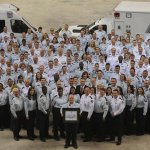MedPAC Examines Beneficiary Use of Emergency Departments
During its October meeting, the Medicare Payment Advisory Commission (MedPAC), reviewed Medicare’s current policies related to non-urgent and emergency care, as these topics relate to the use of hospital emergency departments (EDs) and urgent care centers (UCCs). The Commission is examining this topic because the use of ED services in recent years has grown faster than that of physician offices. At the same time, the share of ED visits that are coded as high acuity has increased.
The Commission is exploring Medicare beneficiaries’ use of EDs and UCCs for non-urgent services. In addition, the Commission is analyzing ED coding to determine if the increase in coding high-acuity visits reflects real change in the patients treated in EDs. This slide deck shows the potential savings Medicare could realize if beneficiaries shift certain care to the UCC setting.
During the meeting, the staff sought feedback from Commissioners for developing next steps. This topic will likely continue to be addressed in future meetings.
From the perspective of ambulance payment reform, the observations made by the Commissioners and staff would also seem to support incorporating scope-appropriate ambulance services in the context of community paramedicine or treatment at the scene with referral. While additional work needs to be done by the ambulance community before these services can be incorporated into the Medicare reimbursement program, discussions like the one at MedPAC last week, show the importance of getting the details right so that ambulance services can be part of new payment models likely to be considered.
The American Ambulance Association is leading the effort with the Medicare program to develop appropriate models that account for the cost of providing services through sustainable reimbursement rates, rather than the use of temporary grants. We are also focused on ensuring services align with the scope of practice laws. Led by the Payment Reform and the Medicare Regulatory Committees, our efforts include regular meetings and discussions with leaders at the Centers for Medicare & Medicaid Services, as well as key Members of Congress. Follow us on Facebook and Twitter to learn more about our ongoing efforts.





